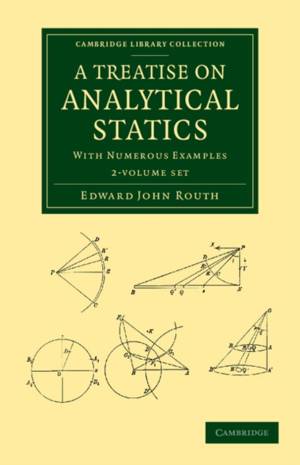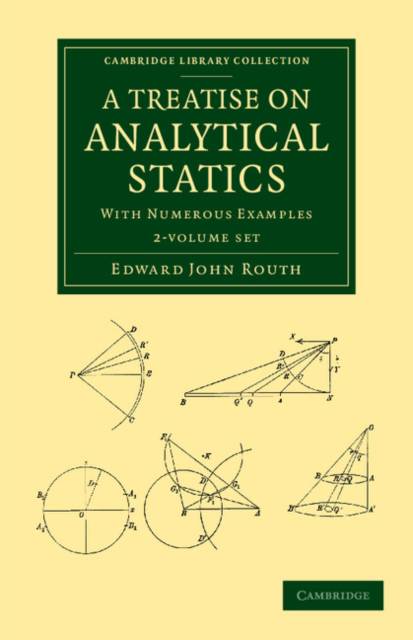
- Afhalen na 1 uur in een winkel met voorraad
- Gratis thuislevering in België vanaf € 30
- Ruim aanbod met 7 miljoen producten
- Afhalen na 1 uur in een winkel met voorraad
- Gratis thuislevering in België vanaf € 30
- Ruim aanbod met 7 miljoen producten
Zoeken
€ 83,95
+ 167 punten
Omschrijving
As senior wrangler in 1854, Edward John Routh (1831-1907) was the man who beat James Clerk Maxwell in the Cambridge mathematics tripos. He went on to become a highly successful coach in mathematics at Cambridge, producing a total of twenty-seven senior wranglers during his career - an unrivalled achievement. In addition to his considerable teaching commitments, Routh was also a very able and productive researcher who contributed to the foundations of control theory and to the modern treatment of mechanics. This two-volume textbook, which first appeared in 1891-2 and is reissued here in the revised edition that was published between 1896 and 1902, offers extensive coverage of statics, providing formulae and examples throughout for the benefit of students. While the growth of modern physics and mathematics may have forced out the problem-based mechanics of Routh's textbooks from the undergraduate syllabus, the utility and importance of his work is undiminished.
Specificaties
Betrokkenen
- Auteur(s):
- Uitgeverij:
Inhoud
- Aantal bladzijden:
- 806
- Taal:
- Engels
- Reeks:
Eigenschappen
- Productcode (EAN):
- 9781108050302
- Verschijningsdatum:
- 5/09/2013
- Uitvoering:
- Boek
- Afmetingen:
- 140 mm x 224 mm
- Gewicht:
- 952 g

Alleen bij Standaard Boekhandel
+ 167 punten op je klantenkaart van Standaard Boekhandel
Beoordelingen
We publiceren alleen reviews die voldoen aan de voorwaarden voor reviews. Bekijk onze voorwaarden voor reviews.











